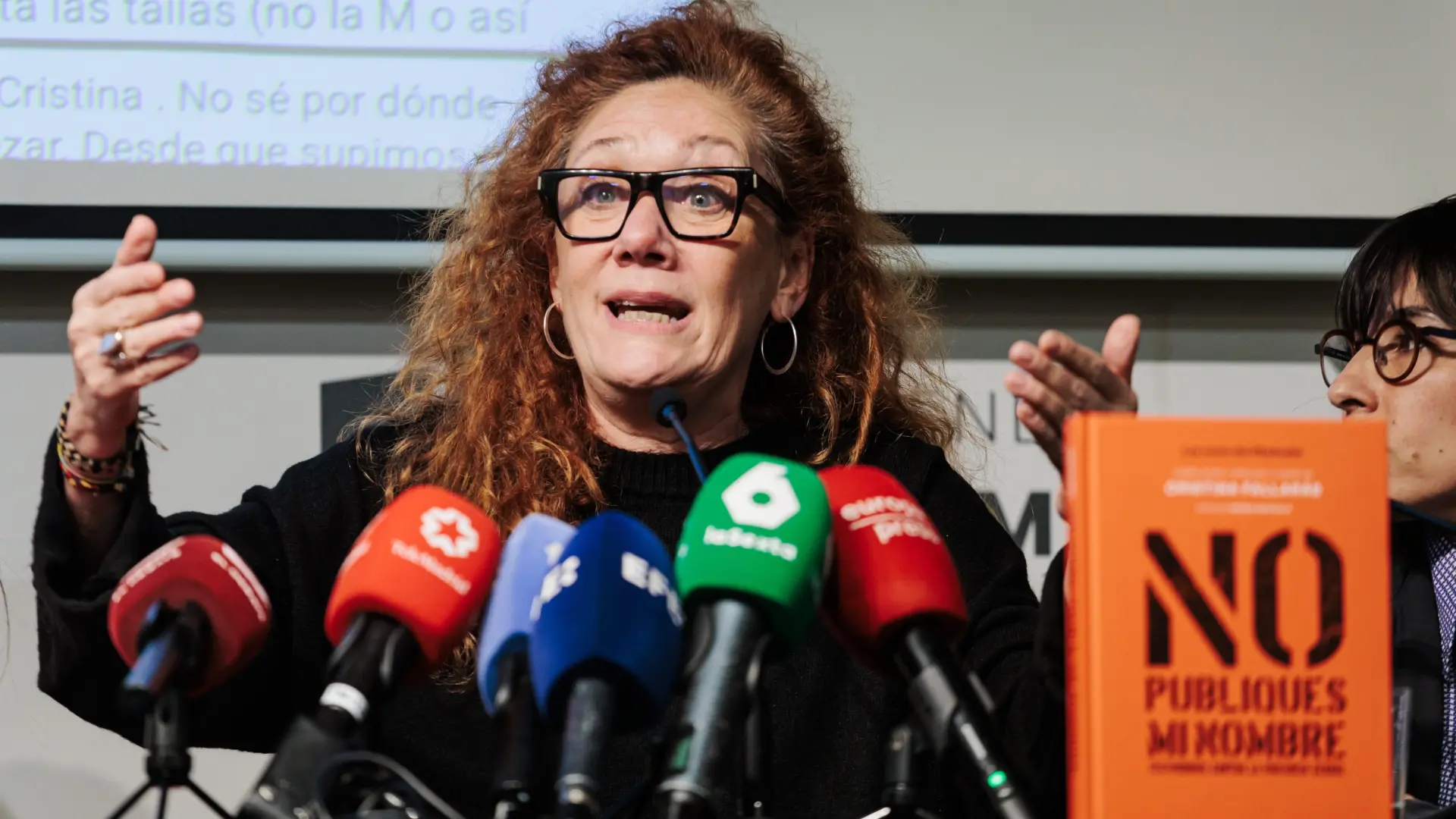
Writer and journalist Cristina Fallarás ha explicado este miércoles que su libro'Publiques mi nombre' It is a collective memory of macho violence “que no busca el signalamiento” from no one, por lo que “no esperaba ni había intention de que mimitiera” the Speaker of the Parliament of Sumar, Iñigo Errejón.
Así lo ha affirmado In the presentation of Fallarás's book, en el que publica denuncias anónimas de violencia machista sObre Íñigo Errejón.
“Your arxivo común de la violencia machista, the sea can be punished or not. There is no requirement for Apellidosson denuncias de cómo se contruje la violencia sex”, y ese es su éxito, ha added.
Fallarás stated that there is a large majority of them has sex Sufridas por las mujeres suceden en el entorno familiar y un 70% se da in la infancia, según las denuncias anónimas compiled en su work.
Siglo Veintiuno, Fallarás added that this calculation Learn about 800 testimonials. (355 pages), y que se eja mucho de las cifras oficiales del observatorio de Violencia de Género que situationan la agresión situationan situationan la agresión sexy as 40%.
According to Fallaras and an editor and journalist specializing in human rights, besides the family, the second most reported area of sexual harassment by women is the doctor. Andrea Aldana, presentation también en la rueda de prensa.
Fallarás explained that this is in August 2022 lanzó en repeats the #SeAcabó campaign Thousands of women responded to this call to give voice to victims of sexual violence and decided to share their experiences with just one request. “No publiques mi nombre”.
It was this request that headlined the collection of statements, and was so committed to the campaign that Fallaras opted to share the stories in screenshot format, removing names and respecting the anonymity the victims wanted.
Identification: “Eso a my también me pasto”
The process of Fallaras spoke like this: “Me llega el mensaje, Learn about identityde manera que no es rastreable y el aggressor jamás podrá saber que hablaba de él. Eliminating trazabilidad is the main thing.
“Yal ser una captura, otra vantagea es que no capa las palabras (“coño, vagina, me follaba el culo…”) se publica lo que dice la mujer con sus propias palabras,” he said.
Moreover, it creates mechanisms of identification (“eso a mí también me pasó”), ofrece un espacio de denunciation. The result, he says, is an “effective and irrefutable” text that should go into academies and serve as a textbook for masters. Sexual violence.
The writer admitted that there were many statements that impressed him, but above all he “highlighted one of a girl who condemned the sexual harassment of the boys of her town. She was locked in a garage.”le pusieron un caso de moto para no ver su cara, la consideraban fea y la violaron”.
Only 5% of the complaints included in the book are collected
Y es que además del entorno familiar y la infancia, el mundo village es otro ambiente donde se dan estas agresiones,”el gran olvidado de estos casos”.
Fallarás confirmed that the book, whose benefits will be dedicated to the creation of spaces and programs that give women a voice against sexual violence, collected less than 5% of the complaints received and recalled that it was launched in 2018. First time for #Cuéntalo They collected three million shares in the first two weeks.
He closed his social network account 7 months after starting the 2022 campaign on Instagram. Afraid of losing the collected material, Fallaras decided to collect it and publish it in a book that serves as a collective memory of women and girls who have been sexually assaulted. “romper su silencio, miedo y vergüenza”.
You may also like
-
What are you in according to the regime of the soldiers? Putin and Kim Jong-un's friendship is ahead of zoos
-
'Frodo', el hombre gol del Utebo: “I gustaría llegar al fútbol professional”
-
Broncano was interviewed by Jorge Martín but was recorded without a release date after a dispute with 'El Hormiguero'.
-
'Odón de Buen' becomes Spain's largest and most advanced oceanographic ship
-
Trump picks woman to replace controversial sex-scandal nominee Matt Gaetz
